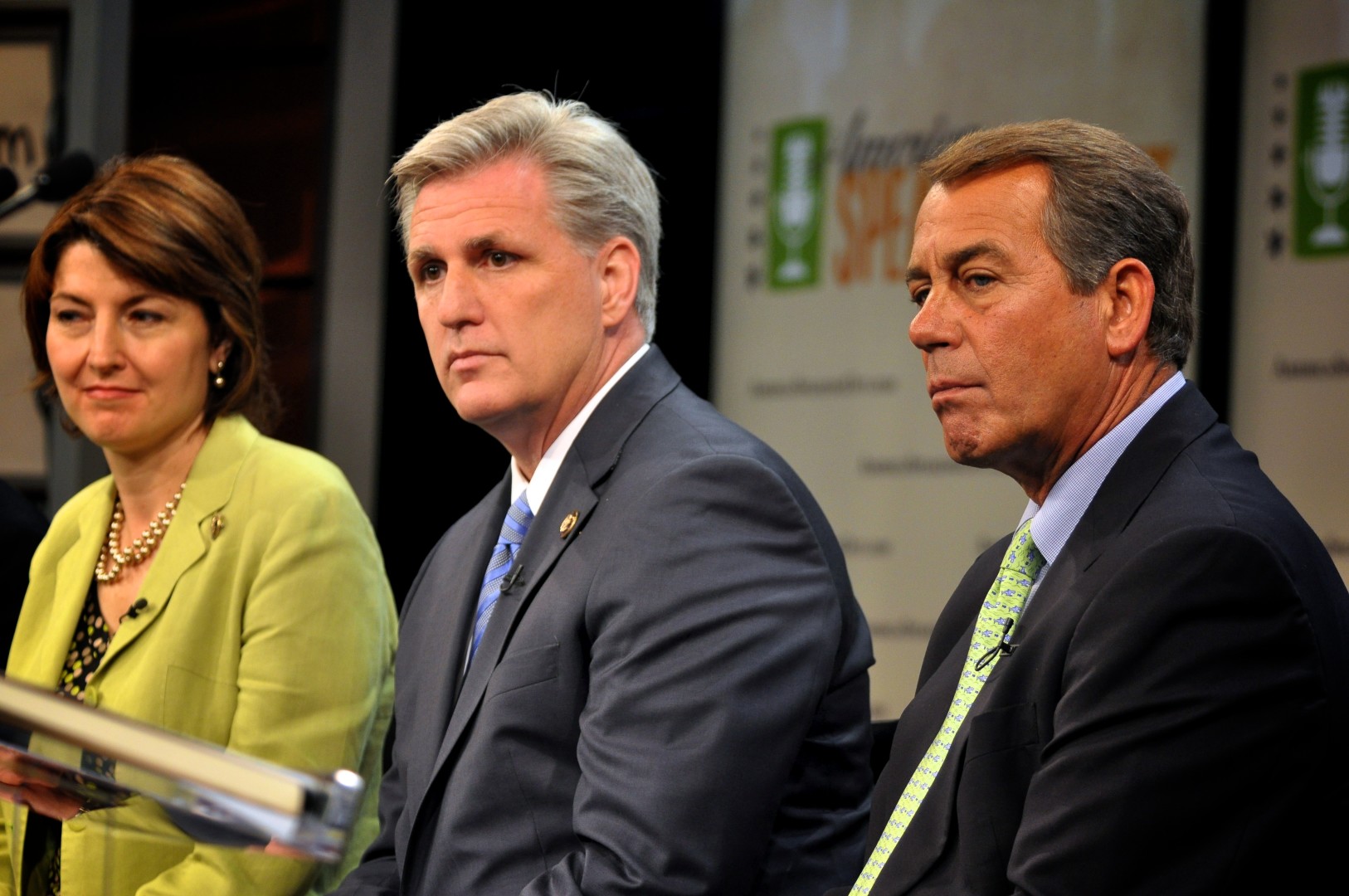When House Republicans meet next week to choose a new leadership team, the party will be cementing a generational shift that began five years ago with the election of a wave of young conservatives. In the process, the new generation will be faced with an existential choice, one that will define their legacy.
The choice facing the newer generation is one between conservative realism and conservative purity. Put another way, they have to answer this question: Were the 2010 and 2014 political waves that swept them into power course corrections, an electorate reacting to perceived overreach by a Democratic White House and Congress? Or were those GOP waves proof that the electorate leans more to the right than to the center?
The argument for the former — that country hasn’t fundamentally shifted from center — lies in the presidential election results from 2008 and 2012, when Democrats won relatively huge electoral college majorities. Republicans have only won the popular vote once in the last six presidential contests.
The argument for the latter comes from conservatives who point to the party’s historic majority in the House.
The conclusion that GOP members draw will have an impact on the course that House Speaker heir-apparent Rep. Kevin McCarthy (R-Calif.) will chart. On one hand, concluding that their political good fortune was the result of a course correction would seem to argue for a realist path, one that accepts incremental conservative gains through negotiation and compromise. On the other, concluding the electorate that sent them to Washington is fundamentally more conservative than center, would demand ideological purity.
They are mutually exclusive options. The realists acknowledge the 46 Democratic votes in the Senate, and President Obama’s veto pen. The purists demand the politically impossible, like defunding of Planned Parenthood, and will not stand for compromise with a Democratic White House and a divided Senate.
The new generation is not likely to have any representatives in the upper echelons on leadership after next week’s election. Of the candidates running for leadership positions, only one candidate and one member of leadership — Rep. Dennis Ross (R-Fla.), running a long-shot campaign for Majority Whip, and Rep. Luke Messer (R-Ind.), chairman of the Republican Policy Committee — were elected after 2010.
But their lack of representation does not mean the new generation has no clout. The electoral waves of 2010 and 2014 changed the face of the Republican conference. More than half of the 247 members of the conference, 141, were elected in 2010 or more recently. Many of those members came to Washington unaccustomed to, and unwilling to abide by, the go-along, get-along way of business.
The momentum within the House Republican Conference is with those who conclude they were sent to Washington to fundamentally alter its ways of doing business, and quickly. They have been encouraged by a tsunami of outside spending, largely from groups that raise money by demanding ideological purity. They have been pressured by conservative activists at home, in safely Republican districts, who promise swift retribution against any member who doesn’t toe the line.
At the same time, campaign finance laws like McCain-Feingold, and the lawsuits that have chipped away at its key provisions, have weakened political parties, which for centuries have acted as moderating forces.
House Speaker John Boehner, a realist whose resignation will spur next week’s leadership elections, is the latest victim of those purists. McCarthy, the odds-on favorite to replace Boehner in the Speaker’s chair, will have to work very hard to make sure he’s not the next victim.
Success, for the purists, will be impossible to achieve in the short run. They face a Democratic White House and a Senate led by Republican institutionalists like Majority Leader Mitch McConnell, who is as determined to demonstrate that Republicans can govern alongside Democrats as the purists are of their cause. Only a handful of Senate Republicans, like Sen. Ted Cruz (R-Texas), make common cause with the House purists.
The competing interests, between those who demand that their goals be met immediately and those who strive for incremental gains, are evident in the fractured contest for the Republican presidential nomination. Realists like former Florida Gov. Jeb Bush (R) and Ohio Gov. John Kasich (R) are beating back purists like Cruz and retired neurosurgeon Ben Carson. Yet Sen. Marco Rubio (R-Fla.), now a darling of the Republican establishment, won a standing ovation when he announced Boehner’s exit at a gathering of social conservatives last week in Washington.
Even real estate magnate Donald Trump, no conservative purist by any stretch of the imagination, has gained followers by running hard against the Republican establishment.
The choice facing House Republicans next week is less about who the next speaker will be, given McCarthy’s apparent strength, than it is about the crossroads the McCarthy-led House faces. The realist road could lead to incremental gains, at the cost of conservative outrage. The purist path will make those conservatives happy — but at a political cost to the Republican Party as a whole, and perhaps to the speaker they are about to elect.

